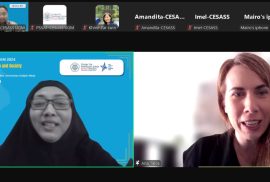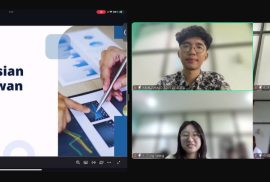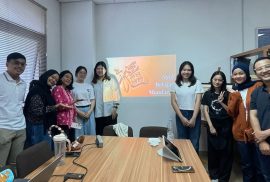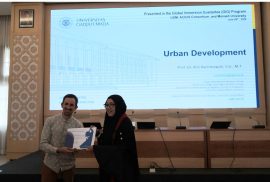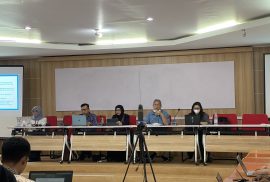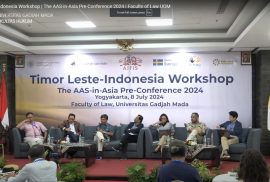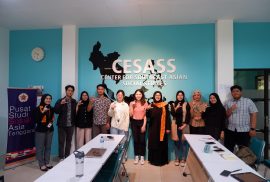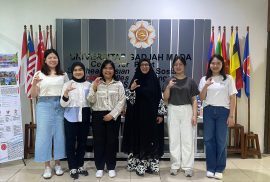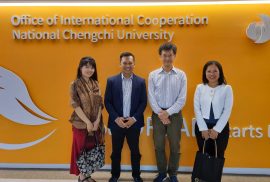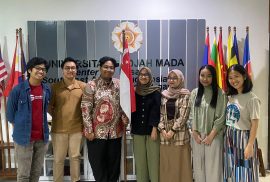Yogyakarta, July 17th, 2024 – The Center for Southeast Asian Social Studies Universitas Gadjah Mada (CESASS UGM), Indonesia, proudly announces the successful conclusion of the 2024 Summer Course Program on “Smart City, Digital Transformation, and Society in Southeast Asia.” The event, supported by the Direktorat Kemitraan dan Relasi Global (DKRG) UGM, has been a premier educational platform fostering knowledge exchange and multidisciplinary collaboration to address the region’s unique challenges and opportunities.
The inaugural CESASS-CHAT, titled “Southeast Asian Policy in Taiwan,” was successfully held on July 12th, 2024. The event featured esteemed speakers Chen An Chou, Suthasinee Huang, and Yi Ching Wang, who provided in-depth insights into Taiwan’s Southeast Asian policy.
This first session of the CESASS-CHAT series attracted a diverse audience, including academics, students, and members of the public interested in Southeast Asian affairs and Taiwan’s foreign policy. The event offered a platform for discussing Taiwan’s strategic engagements with Southeast Asian countries, focusing on southern policy, new southbound policy, and implementation measures.
Sharing Session: “Ayo! Belajar Mandarin”, held on July 5th, 10th, and 15th, 2024, was a resounding success. Featuring distinguished Chen An Chou, Suthasinee Huang, and Yi Ching Wang, international students from National Chengchi University, these events provided a unique and enriching learning experience for all attendees.
Over three days, participants from various backgrounds gathered to engage in interactive activities, gain valuable language skills, and immerse themselves in Mandarin culture. The sessions covered fundamental language skills, cultural insights, and practical tips, making learning Mandarin both fun and accessible.
On 28 June 2024, Head of Centre for Southeast Asian Social Studies UGM, Prof. Dr. Rini Rachmawati, S.Si., M.T., was a speaker at the Monash Global Immersion Guarantee (GIG) Program in Indonesia, a collaboration between UGM, ACICIS (The Australian Consortium for ‘In-Country’ Indonesian Studies), and Monash University. In this event, Prof. Dr. Rini Rachmawati, S.Si., M.T. presented ‘Urban Development’.
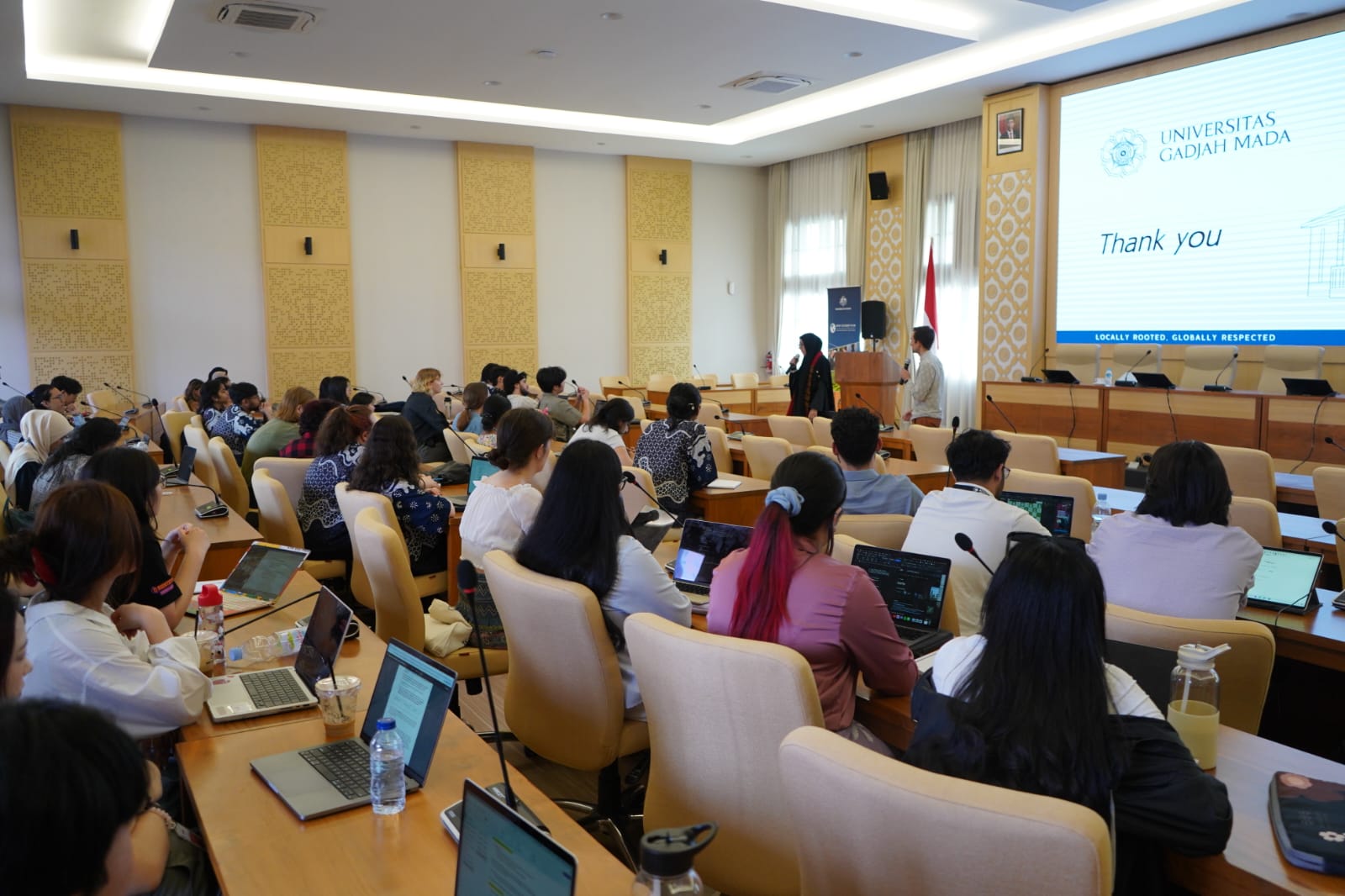
Photo by: UGM Organiser
[Yogyakarta, July 9th, 2024] – The Center for Southeast Asian Social Studies Universitas Gadjah Mada (CESASS UGM), Indonesia held a roundtable discussion on “the Interplay of Smart Cities, Social Transformation, and Identity Politics in Southeast Asia”.
The swift advancement of technology and its incorporation into urban settings have converted cities into smart cities, targeting improved efficiency, sustainability, and quality of life. At the same time, Southeast Asia is undergoing substantial social changes driven by global shifts, cross-border movements, and an increasing emphasis on regional identity, especially within the context of ASEAN’s vision of “One Vision, One Identity, One Community.” This theme seeks to delve into the intricate interactions between these factors, offering a thorough understanding of how smart cities, social transformation, and identity politics converge and influence the future of Southeast Asia.
On July 8, 2024, Drs. Muhadi Sugiono, M.A. (one of the researchers at the Center for Southeast Asian Social Studies UGM), became one of the speakers at the “Timor-Leste Workshop at Association of Asian Studies” which is part of the AAS-in-Asia 2024 Conference series of events. Over the past few years, the AAS has held preconference workshops, and on this occasion, the workshop was held under the auspices of AAS Timor Leste. Universitas Gadjah Mada (UGM) has hosted the Timor Leste preconference on July 8, 2024, which was held at the Faculty of Law UGM.
[Yogyakarta, July 1st, 2024] – The Center for Southeast Asian Social Studies Universitas Gadjah Mada (CESASS UGM), Indonesia held the opening of the “Smart City, Digital Transformation and Society in Southeast Asia” Summer Course Program 2024. The event is supported by the Direktorat Kemitraan dan Relasi Global (DKRG) UGM.

This year Summer Course Program is a premier educational platform designed to foster knowledge exchange and promote deeper understanding of the multidisciplinary collaboration to address the region’s unique challenges and opportunities, with a particular focus on Southeast Asia. The school brings together prominent lecturers and researchers from around the globe, providing a unique opportunity for participants to engage with experts in the field and gain valuable insights into the region’s challenges and opportunities.
On Thursday, the 27th of June, Center for Southeast Asian Social Studies Universitas Gadjah Mada (CESASS UGM) held a welcoming meeting for internship students from National ChengChi University (NCCU), Taiwan. The three foreign students: Suthasinee Huang, Chou, Chen-An, and Wang, Yi-Ching will participate in an internship program at CESASS aimed at gaining substantive experience by building networks with Southeast Asia social studies researchers and experts for the period from the end of June to the end of July.
Internationalization of Higher Educations (HEs) is still mainly seen as a westernized, largely Anglo-Saxon, and predominantly English-speaking paradigm. Following Hans de Wit’s theory on comprehensive and inclusive approach of internationalization (2019) and using the rationales of Jane Knight in critically seeing the aspect of internationalization and the competitive agenda of HEs (2010), a joint research by Dr. Falikul Isbah (Universitas Gadjah Mada), Dr. phil. Vissia Ita Yulianto (Universitas Gadjah Mada & National Chengchi University), Dr. Le Thi-Nham (National Chengchi University) and Dr. Muhammad Rum (Universitas Gadjah Mada) investigates how the components of today’s neoliberal approach of HEs are at the cost of the issue of inclusion in Indonesia, Taiwan and Vietnam. The group is photographed with Prof. Ching-Ping Tang, vice president of International Affairs, National Chengchi University. They also had conducted interviews with university administrators, scholars and students in National University of Science and Technology (NTUST) and Tamkang University (TKU), Taiwan (ROC).
A presentation about the unique architectural feature of Singapore was conducted last Wednesday, April 25 at the Center for Southeast Asian Social Studies. The presentation was led by two CESASS interns, Rizky Demas Arjunanda and Mellyana Nungki Pramitha.
The presentation explored the history, significance, and evolution of Void Decks in the Housing and Development Board (HDB) flats of Singapore. These open spaces, typically located on the ground floor of HDB blocks, have served as communal areas for residents, fostering a sense of community and facilitating various activities. Initially designed to improve ventilation and prevent floods, these spaces have evolved over time to become quintessential spaces for bonding between neighbors.

